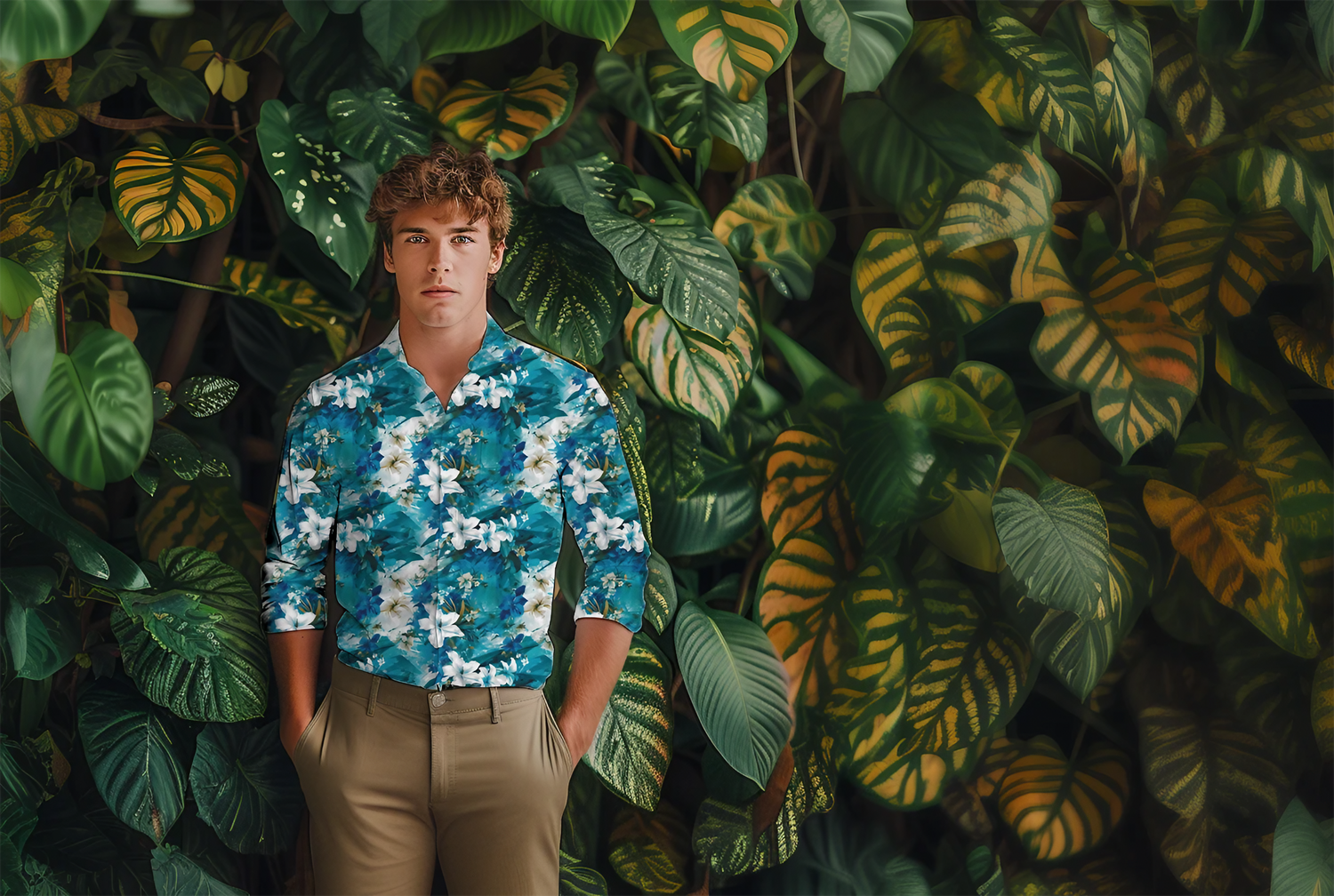In this exploration, we embark on a journey through island aesthetics by spotlighting Hawaiian shirt history: Delve into the Roots of a Timeless Tropical Icon. Tracing its inception back to the early 1900s, the bright colors and bold patterns quickly garnered attention from both locals and visitors. The shirt’s design soon transcended geographic boundaries, symbolizing casual comfort, cultural unity, and laid-back lifestyles.
Uncovering the Past – Hawaiian shirt history: Delve into the Roots of a Timeless Tropical Icon
Birthed from a convergence of local resources and creative tailors, early aloha shirts took shape under the skillful hands of Japanese artisans who merged Eastern fabrics with Western silhouettes. Their imaginative approach produced flowing textiles adorned with tropical floral imagery, instantly capturing the carefree spirit of the islands. Beyond their visual appeal, these garments carried cultural hints of Hawaiian traditions, establishing them as unofficial emblems of an emerging fashion era.
Foreign travelers became enamored with the cheerful attire, spreading awareness across the globe as they brought shirts home. This organic distribution propelled the trend into mainstream consciousness. Before long, the garment was not merely a souvenir—it was a recognizable statement piece, effortlessly blending beach-inspired ease with worldwide appeal. As popularity grew, manufacturers elevated the shirt’s quality and print diversity, further fueling its status as a global icon.
Cultural Influence – Hawaiian shirt history: Delve into the Roots of a Timeless Tropical Icon
Over the decades, the aloha shirt evolved from novelty item to cultural mainstay, buoyed by famous figures who wore it in Hollywood films and public appearances. Their endorsements amplified the shirt’s fashionable credibility. Widespread media coverage of the laid-back island lifestyle helped secure its reputation as an invitation to relax and embrace fun.
Local craftspeople continued experimenting with fabric blends and motifs, adding symbolic icons such as hibiscus blossoms, hula dancers, and ocean waves. This ongoing innovation—rooted in respect for island heritage—prompted the garment’s transition from casual vacation wear to a spirited symbol of inclusivity. Its bright patterns and comfortable drape quickly resonated with varied audiences, reflecting each wearer’s individual flair while bridging cultural divides.
Key Styling Elements
- Bright color palettes and bold prints
- Light, breathable fabrics like rayon and cotton
- Relaxed cuts that allow easy movement
In light of these features, it is no surprise that Hawaiian shirt history: Delve into the Roots of a Timeless Tropical Icon continues to fascinate style enthusiasts worldwide. Fueled by island-inspired artistry and a sense of freedom, the shirt’s design endures as a testament to both comfort and originality.
Timeline Trends
| Decade | Notable Trend | Cultural Impact |
| 1930s-1940s | Adoption by US tourists | Sparked national curiosity |
| 1950s-1960s | Hollywood endorsements | Cemented fun-loving global image |
| 1970s-1980s | Surf and beach movements | Expanded sporty, carefree identity |
Examining each era in this table underscores why Hawaiian shirt history: Delve into the Roots of a Timeless Tropical Icon resonates across generations. From its humble beginnings in small tailor shops to international runways, every epoch has breathed new life into the garment, adding further depth to its relaxed yet captivating allure.
Authentic Hawaiian shirts, also known as aloha shirts, typically feature heritage motifs that reflect island life and culture. They are often crafted with high-quality, breathable fabrics. Traditional designs incorporate local florals, ocean imagery, or Polynesian-inspired patterns.
Yes, many Hawaiian residents wear aloha shirts for business events, especially if the design leans more subtle. Paired with dress pants or a tailored skirt, they can blend informal flair with polished style for semi-formal or even select formal gatherings.
For longevity, wash the shirt in cold water and opt for gentle detergent. Hang drying is preferable, as it preserves fabric vibrancy. If ironing is necessary, use a low setting to avoid damaging the prints. Regularly following these steps keeps colors lively and fabric intact.
In closing, these breezy shirts continue to invigorate closets worldwide, offering an uplifting reminder of sun-soaked beaches and warm island welcomes.
























